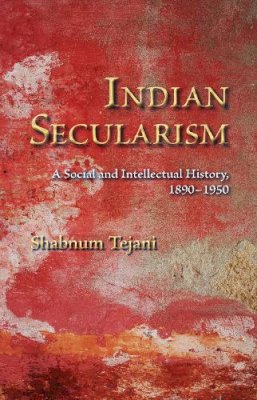
Indian Secularism: A Social and Intellectual History, 1890-1950
Shabnum Tejani
Many of the central issues in modern Indian politics have long been understood in terms of an opposition between ideologies of secularism and communalism. Observers have argued that recent Hindu nationalism is the symptom of a crisis of Indian secularism and have blamed this on a resurgence of religion or communalism. Shabnum Tejani unpacks prevailing assumptions about the meaning of secularism in contemporary politics, focusing on India but with many points of comparison elsewhere in the world. She questions the simple dichotomy between secularism and communalism that has been used in scholarly study and political discourse. Tracing the social, political, and intellectual genealogies of the concepts of secularism and communalism from the late nineteenth century until the ratification of the Indian constitution in 1950, she shows how secularism came to be bound up with ideas about nationalism and national identity.
Product Details
About Shabnum Tejani
Reviews for Indian Secularism: A Social and Intellectual History, 1890-1950
Dilip Simeon
Independent Scholar and Historian
Tejani draws our attention to the evolution of secularism as a political concept in colonial India, and to the often unexpected conceptual anchors that continue to exert a determinative, though hidden, influence over secular politics up to the present day.Vol. 115 Feb. 2010
Srirupa Roy
University of Massachusetts, Amherst
Indian Secularism . . . provides us with a nuanced, historical account of the developmental relationship of ideas of nationalism comunalism, and secularism in India. It will be of interest to many readers.V.10.2 Fall 2009
Manu Bhagavan
Journal of Colonialism and Colonial History
What comes through in Tejani's study is that despite claims to the contrary, India was (and is) dominated by one ethnic group, variously orthodox but homogeneously Hindu.October 2009
Choice
